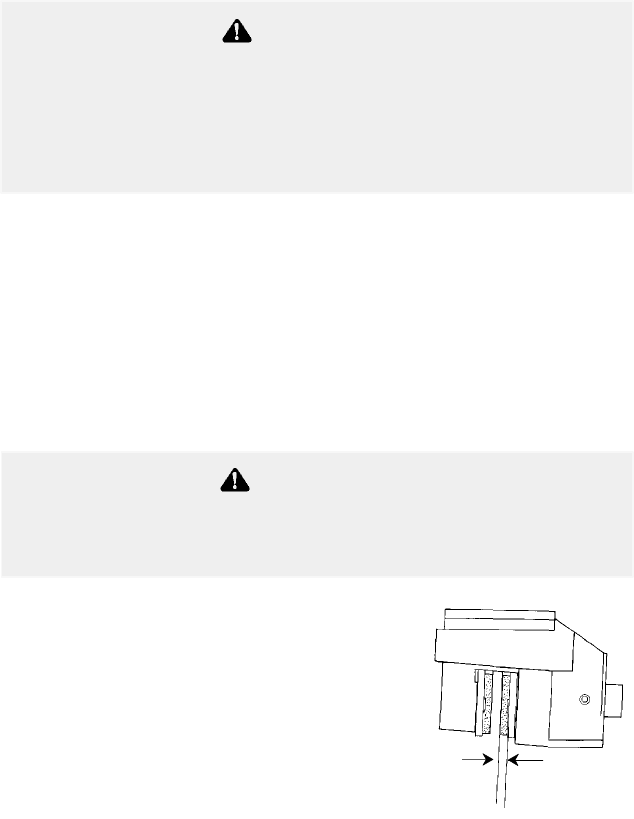
93
MAINTENANCE AND LUBRICATION
Adjustments
Brakes
The front brakes are hydraulic disc brakes, activated by moving the
brake lever toward the handlebar. These brakes are self-adjusting.
The following checks are recommended to keep the brake system in
good operating condition. Check more often if brakes are used heavily
under normal operation.
1. Always keep brake fluid at an adequate level (see page 40).
NOTE: Under normal operation, the diaphragm extends into the
reservoir as fluid level drops. If the fluid level is low and the
diaphragm is not extended, a leak is likely and the diaphragm should
be replaced. Always fill the reservoir as needed whenever the cover is
loosened or removed to ensure proper diaphragm operation. Use
Polaris DOT 3 brake fluid. Do not overfill.
2. Check the brake system for fluid
leaks.
3. Check the brakes for excessive
travel or spongy feel.
4. Check the friction pads for wear ,
damage and looseness.
5. Check the security and surface
condition of the disc.
NOTE: Pads should be changed when
worn to 3/64″ (.1 cm), or about the
thickness of a U.S. dime.
Never store or use a partial bottle of brake fluid. Brake fluid is
hygroscopic, meaning it rapidly absorbs moisture from the air.
The moisture causes the boiling temperature of the brake fluid to
drop, which can lead to early brake fade and the possibility of
accident or severe injury. After opening a bottle of brake fluid,
always discard any unused portion.
WARNING
An over-full master cylinder may cause brake drag or brake lock-up,
which could result in serious injury or death. Maintain brake fluid at
the recommended level. Do not overfill.
WARNING
3/64″ (.1 cm)


















